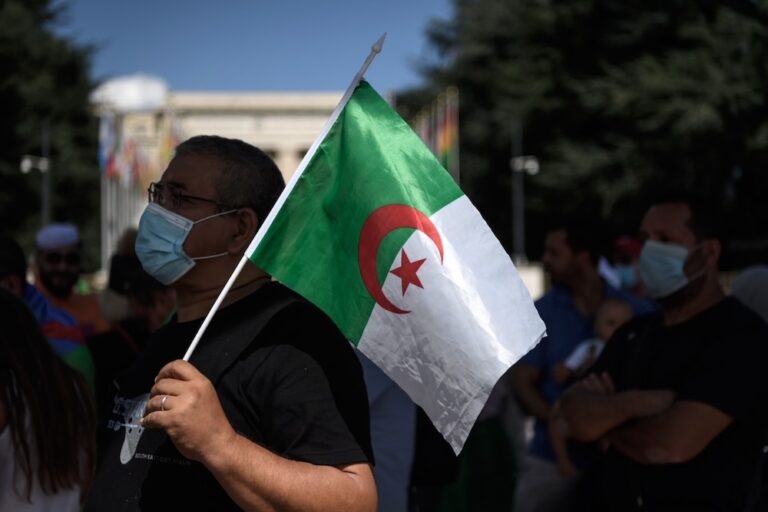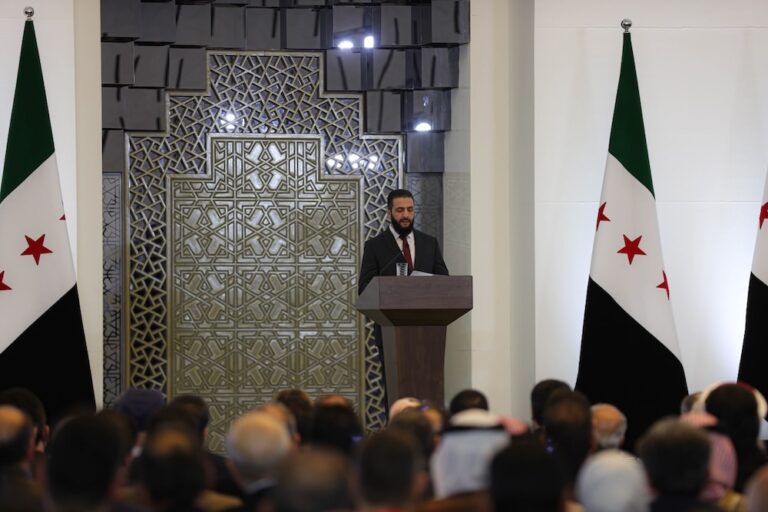(WAN/IFEX) – The No Freedom… No Culture conference was held this week during the Intergovernmental Conference on Cultural Policies for Development which brought culture ministers from some 150 countries to Stockholm under the auspices of UNESCO and the Swedish Government. The conference, part of WAN’s 50th anniversary celebrations, brought together personalities from journalism, music and […]
(WAN/IFEX) – The No Freedom… No Culture conference was held this week
during the Intergovernmental Conference on Cultural Policies for Development
which brought culture ministers from some 150 countries to Stockholm under
the auspices of UNESCO and the Swedish Government. The conference, part of
WAN’s 50th anniversary celebrations, brought together personalities from
journalism, music and the arts to examine the relationship between the
struggles for freedom of the press and other forms of free expression, and
to discuss the most effective forms of artistic resistance to repression.
The conference, organized by the World Association of Newspapers and Index
on Censorship magazine, began on 31 March 1998 without one of its
participants: independent writer and editor Faraj Sarkoohi was barred by the
Iranian government from travelling abroad. The conference was to have Mr
Sarkoohi on a panel of writers, musicians, filmmakers and artists who had
suffered censorship, beatings and jailings under repressive regimes. But the
Iranian government failed to issue him a passport to attend the conference.
Mr Sarkoohi, however, managed to get a letter to his conference colleagues,
who included China’s best-known dissident Wej Jingsheng and some 15 other
artists and writers from around the world.
The letter eloquently illustrated the reasons why the No Freedom…No
Culture conference was needed to draw attention to repressive regimes and
the silences they impose on creative individuals.
“I know in detail the restrictions of authoritative censorship, and am
familiar with the activities of various pressure groups, both official and
non-official, who create an atmosphere of fear, terror, and murder imposing
a kind of self-censorship upon journalists and writers”, he wrote in the
letter, which was read at the conference.
Mr Sarkoohi, a writer and magazine editor, was recently released after a
year in prison. He is one of the signers of the “1994 Declaration of 134
Writers”, a document calling for an end to all literary censorship in Iran.
He was also among 12 writers arrested while meeting to sign on to a newly
drawn-up mandate for a writers’ association.
Mr Sarkoohi told the conference he was forced to write “delicately” because
of restrictions imposed by Iran, but he asked the meeting’s participants to
“read between the lines” to understand his message.
“As an Iranian editor, I have learned to write between the lines, for those
who have learned how to read it,” he said. “I have learned how to convey
important events, reflect opinions, and reveal the untold aspects of reality
of my society, in a way that would not
be prohibited.”
“I have learned to write delicately about the disappearance of dissident
intellectuals, writers and poets in sidewalks and blind alleys. I can
recognise the red lines, where crossing them will bring brutal punishment. I
have learned that to write or speak explicitly
will be followed by inevitable imprisonment, torture, forced confession,
ugly false charges, and even death”, the letter said.
The conference was also an opportunity for Chinese dissident Wei Jingsheng
to receive the Olof Palme Prize that was awarded to him in 1994 when he was
in a Chinese prison.
The pro-democracy activist, released in November 1997 and exiled to the
United States, received his 1994 prize from Lisbet Palme, widow of the slain
Swedish Prime Minister, during the conference organised by the World
Association of Newspapers and Index on Censorship magazine.
Mr Wei called for a peaceful evolution toward democracy in China, and
criticized western nations for deciding to lift the pressure on the Chinese
Communists because of economic concerns. “The Chinese people can no longer
tolerate dictatorship, a lot of people already identify with the democracy
ideal, but the Communist Party is still repressing these aspirations for
democracy,” he said.
Mr Wei was in Stockholm for the No Freedom…No Culture conference, part of
the World Association of Newspapers’ 50th anniversary celebrations. The
conference brought together personalities from journalism, music and the
arts to examine the relationship between the struggles for freedom of the
press and other forms of free expression, and to discuss the most effective
forms of artistic resistance to repression.
Jailed for advocating democracy when he was 29, Mr Wei is a giant figure in
China’s pro-democracy movement. He has spent much of his life in prison but
since his release has been traveling widely to advocate democratic reform in
China.
WAN, the global association of the newspaper industry, groups more than
15,000 newspapers in over 90 countries.
Note: the complete text of Faraj Sarkoohi’s statement is available from the
WAN Secretariat.


